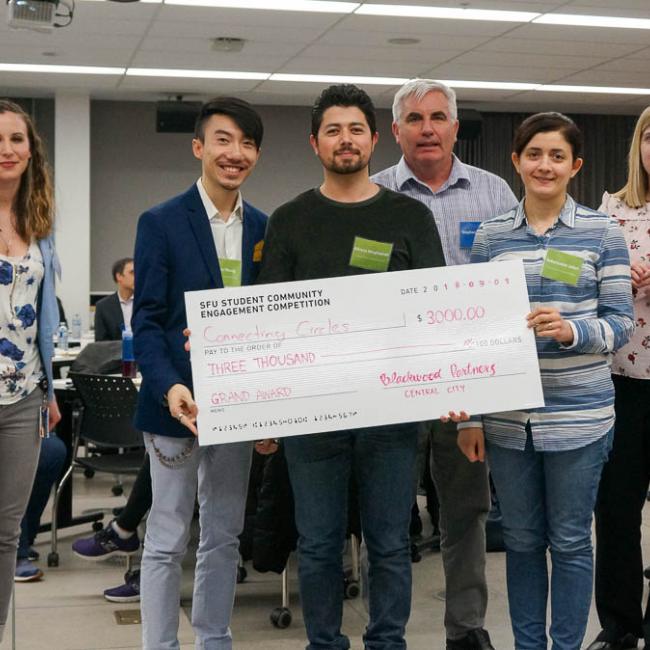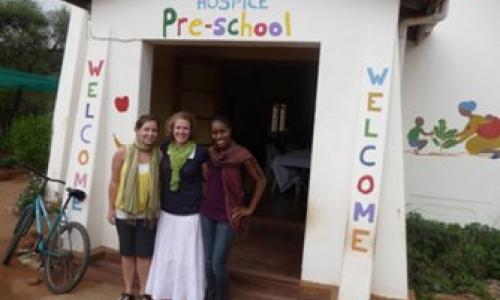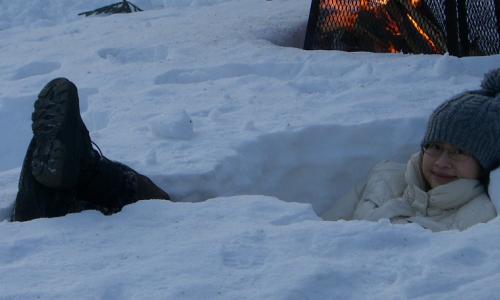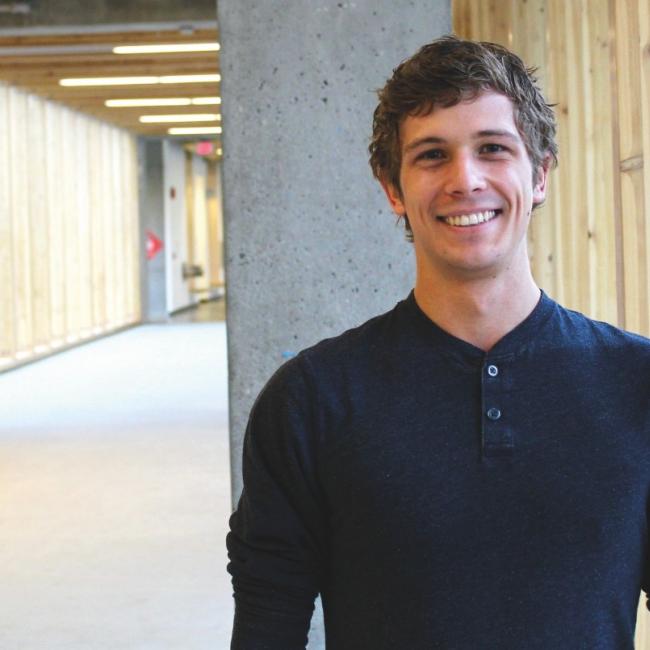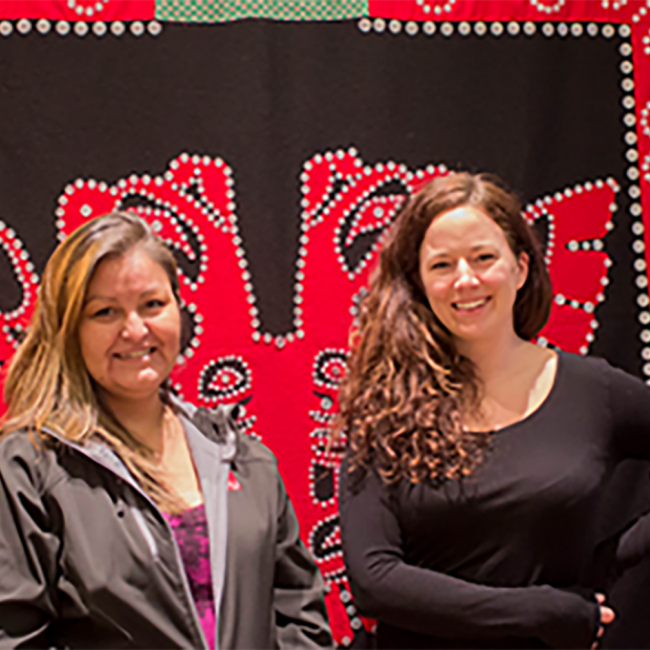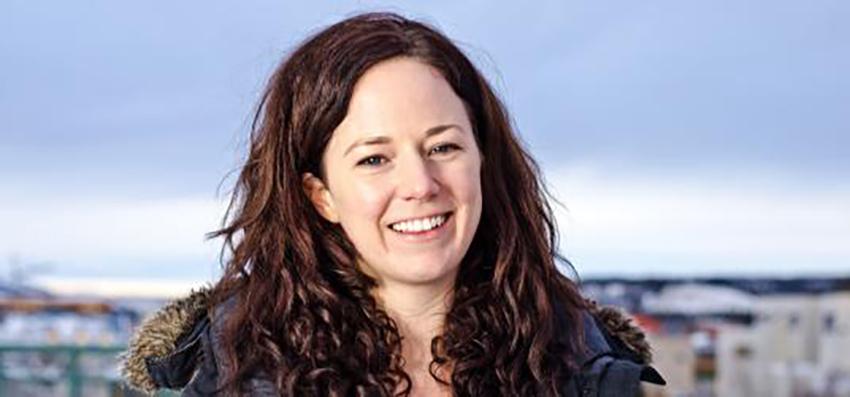
Every semester, the Yukon regional office of Indigenous and Northern Affairs Canada (INAC) hires students to work at its office in Whitehorse. The experience allows students to gain valuable skills while learning about Yukon First Nations, government and life in the North.
INAC (formally Aboriginal Affairs and Northern Development Canada, or AANDC) is one of the federal departments mandated with fulfilling Canada’s obligations to First Nations, Metis and Inuit people. As part of this mandate the department negotiates treaties and self-government agreements, implements programs and services and is responsible for supporting Northerners and First Nations in their efforts to improve social well-being, create economic prosperity and build healthy and sustainable communities.
This is an incredibly exciting time to get involved with the department. Since taking office in November, the Trudeau government has repeatedly declared its intent to renew the relationship between Canada and Indigenous Peoples. The top priorities set out by this government for the Department are to advance the recommendations of the Truth and Reconciliation Commission, implement the United Nations Declaration on the Rights of Indigenous Peoples and work with First Nations people, on the matters most important to them, on a nation-to-nation basis.
Since taking office, the new minister of INAC, the Hon. Carolyn Bennett, formally the Aboriginal affairs critic with the Liberal Party, has been traveling the country meeting with the families of Missing and Murdered Indigenous Women and Girls in preparation for a national inquiry.
Government policy, with respect to Indigenous people, is undergoing a process of innovation and Indigenous perspectives are being actively sought across the department. Through many cross-government initiatives, INAC is working to recruit Indigenous students and graduates.
My Experience
I joined INAC as a co-op student on an 8-month term with the Communications Unit at the Yukon regional office. I was interested in the position because I had spent time working with Reconciliation Canada in 2013 on their Dialogue Circle initiative and was inspired by the growing interest in reconciliation that I could see happening in my own neighbourhood. In researching the position, I learned that 11 Yukon First Nations have signed their Final and Self-Government Agreements; this piqued my interest as I grew up in British Columbia where very few treaties have been signed. I wanted to see the Yukon model in action. Finally, while I am a non-Indigenous person, my youngest brother is shíshálh. Consequently, First Nations culture was an important part of my life growing up. I wanted to learn more about Indigenous history and how our government is shaping its relationship with First Nations people.
Through my time with INAC, I’ve been able to learn about Indigenous culture, Yukon land claims, intergovernmental relations, Aboriginal treaty rights and self-government. The experience allowed me to see how government policies are implemented and how the Yukon office has cultivated a strong partnership with First Nations communities across the territory.
Working in Communications
Communications is an incredibly diverse field. If you have an interest in writing, design, photography, videography, event planning or web development, a position with the INAC Communication team is a great place to gain experience and develop skills. Since starting my placement, I’ve had opportunities to receive web development and photography training, work on writing projects, plan events and attend many workshops on reconciliation, self-government, Yukon land claims and other topics of interest.
The Communications team at the Yukon Regional Office is incredibly welcoming. They hire a co-op student every term and often recruit through SFU. Each person I work with has gone out of their way to help me develop professionally and have often tailored the projects I work on to my skills and interests. It is a really fun office and a great group of people to learn from.
Living in the Yukon
The Yukon is an unbelievable place to live. My placement was during the long, cold winter months, but I wouldn’t have traded it for anything. There is a lot to do in Whitehorse, so if you like to hike, ski, snowshoe, camp or do anything pertaining to the outdoors you will be at home here. Whitehorse is a welcoming place, so meeting people and getting acquainted with Yukon life is easy.
My co-op placement with INAC has given me valuable work experience, a few new marketable skills and a lot of insight into where we are at, and where we are going, in respect to the relationship between Canada and Indigenous peoples. I wanted to work for the department because I wanted to learn more about First Nations history, but I recommend this experience to any young person who is interested in learning about how decisions are made and implemented in government. If you are a student or new graduate looking to gain experience in the workforce, the Yukon is a great place to start.
Beyond the Blog
-
Check out the Indigenous SFU website for more stories, career, co-op, volunteer resources and much more!









